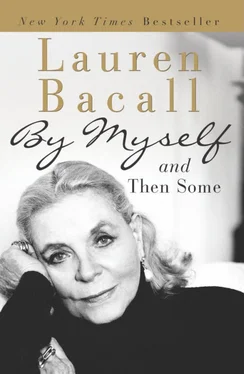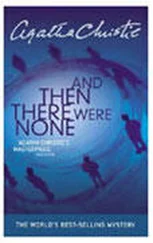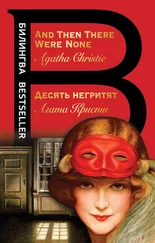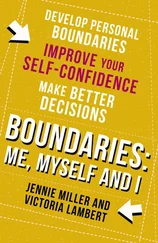I analyzed nothing then – I was much too happy – I was having the time of my life. All that mattered to me was getting to the studio and working – my hours of sleep just got in the way! From the start of the movie, as Bogie and I got to know each other better – as the joking got more so – as we had more fun together – so the scenes changed little by little, our relationship strengthened on screen and involved us without our even knowing it. I certainly didn’t know it. Gradually my focus began to shift away from Howard, more toward Bogie. Oh, I still paid full attention to Howard, but I think I depended more on Bogie. The construction of the scenes made that easy. I’m sure Howard became aware fairly early on that there was something between us and used it in the film.
At the end of the day of the phone number, I went home as usual to my routine: after eating something, I looked at my lines for the next day and got into bed. Around eleven o’clock the phone rang. It was Bogie. He’d had a few drinks, was away from his house, just wanted to see how I was. He called me Slim – I called him Steve, as in the movie. We joked back and forth – he finally said good night, he’d see me on the set. That was all, but from that moment on our relationship changed. He invited me to lunch at Lakeside a few times – or we’d sit in my dressing room or his with the door open, finding out more about one another. If he had a chess game going on the set – he was a first-rate chess player – I’d stand and watch, stand close to him. Physical proximity became more and more important. But still we joked.
Hedda Hopper came on the set one day and said, ‘Better be careful. You might have a lamp dropped on you one day.’ There was a column squib in the Hollywood Reporter : ‘You can have your B&B at lunch any day at Lakeside.’
Bogie took to calling me more often. He had two friends named Pat and Zelma O’Moore. She had sung ‘Button Up Your Overcoat’ in a Broadway show, but had since retired. Pat O’Moore was an Irish actor whom Bogie had befriended – he worked in Bogie’s films and others when there was a part. They had a small boat which they kept in Newport in the slip next to Bogie’s. They lived in a small trailer camp in town. Bogie took me there one night and we all had dinner together, but he couldn’t do that often. Other nights he’d call very late – sometimes one or two in the morning – and come over to my apartment. It was an unusual role for Bogie. He was not by instinct or practice a cheat or a liar. He told me about his marriage – how he had more or less fallen into it. He’d been married twice before. When he was in his twenties, he’d been married to a famous Broadway actress, Helen Menken. Always his wives had been actresses – always wanting to continue their careers, always putting that first.
After Helen, he married an actress called Mary Philips. When they’d been married for seven or eight years he accepted an offer to come to California, and he wanted her to come with him. He didn’t believe in separations and he also didn’t believe in following women around. But she insisted on following her career on the stage and he said, ‘Okay, but don’t stay away too long.’ She did. He met Mayo – fell into something with her (drink and bed, I should think), warned Mary to come out, then went to Chicago, where she was in a play with Roland Young. He got there, found that they were having an affair, and that was the end of that marriage. He felt he had to marry Mayo – he was a marrying man, she expected it, it was the gentlemanly thing to do, so he did it. And it got worse and worse. They were known as the Battling Bogarts – almost every evening wound up with her throwing something at Bogie, trying to hit him and succeeding most of the time. She’d stabbed him in the back with a knife on one occasion and he had the scar to prove it. He said he had to drink – it was the only way he could live with her. She was jealous – always accused him of having affairs with his leading ladies – always knocked him as an actor, making sarcastic references about the ‘big star.’ She’d sung ‘More Than You Know’ in a Vincent Youmans musical, had been successful and was a good actress – but drink took over and the minute there was a third person present, she’d start on Bogie. He wasn’t crying the blues to me – he accepted it. He didn’t like it, but that’s the way it was and he couldn’t do anything about it.
I said nothing to anyone about seeing Bogie outside the studio. But anyone with half an eye could see that there was more between us than the scenes we played. I’d listen for his arrival in make-up in the morning. He’d get there about 8:30 – he wore no make-up, just had his hair blacked in a bit in front where it was getting thin, but he’d come to see me having my hair combed out. Sometimes we’d go to the set together. I’d always leave my dressing-room door open so as not to miss him if he passed by. There was never enough time for me to be with him. In the picture I wore a black satin dress with a bare midriff that was held together with a black plastic ring. One day I cut out a picture of Bogie and fitted it into the ring – walked over to him casually on the set until he noticed it and laughed. Our jokes were total corn: ‘What did the ceiling say to the wall?’ ‘Hold me up, I’m plastered.’… ‘Do your eyes bother you?’ ‘No.’ ‘They bother me.’… And I’d make my gorilla face, which consisted of putting my tongue under my upper lip and dropping my jaw. All silly but marvelous. And he taught me constantly in scenes. We had one scene in which I had been teasing him – he was to take me out the door because he wanted to have a bath – stop and kiss me before being interrupted. He told Howard he’d seen the Lunts do something in a play once which he felt would work for us. After the kiss I was to run the back of my hand up the side of his face, which needed a shave, then give him a short, quick slap. It was a most suggestive and intimate bit of business. Much more so than writhing around on the floor would have been. And in rehearsals of other scenes he’d sometimes add something – a word or a bit of business – that would throw me. He’d say, ‘Just to make sure you’re listening.’ He taught me to stay on my toes at all times.
By now Howard of course knew something was going on and he didn’t like it. As we neared the end of the picture, he summoned me out to his house one night. I was petrified. Just he and his wife, Slim, were there. He sat me down and began. ‘When you started to work you were marvelous – paying attention, working hard. I thought, “This girl is really something.” Then you started fooling around with Bogart. For one thing, it means nothing to him – this sort of thing happens all the time, he’s not serious about you. When the picture’s over, he’ll forget all about it – that’s the last you’ll ever see of him. You’re throwing away a chance anyone would give their right arm for. I’m not going to put up with it. I tell you I’ll just send you to Monogram [the studio that made the lowest form of pictures at that time]. I’ll wash my hands of you.’ Of course I burst into tears – tried to control myself, which only made it worse. Slim said, ‘But what do you do, Howard, if you’re stuck on a guy? How do you handle it?’ She was trying to help me. Howard would have none of it. ‘You just play the scenes, do your work. You can laugh and have a good time, but just remember that when the picture’s over, it will be over.’ I told him I didn’t want to disappoint him, I was trying hard, I loved the work. Bogie had been wonderful to me and we had so much fun together, but I’d try to be better – ‘Honestly, Howard.’
I was so upset when I left – in such a state. I was sure he’d send me to Monogram – that my career was over before it had begun. And didn’t Bogie mean anything he had ever said to me – was it all just for the picture – just empty talk – did he really not care about me? I cried all night. The next morning I was a mess – eyes all puffy and red. I had to put ice on my face at 6:00 a.m. and again when I got to the studio – I didn’t want anyone to see that I’d been crying. I was determined to behave differently. Howard had almost convinced me. After all, Bogie was a married man, he had nothing to lose by flirting with me, it was all frivolous. Only Bogie was not a frivolous man – I knew he wasn’t – and he wasn’t cheap. I was confused, terribly upset, and scared. Bogie greeted me as usual, only I was different and tried not to be. But he knew instantly. ‘What’s wrong?’ ‘Nothing,’ said I. ‘C’mon – has Howard been talking to you?’ I nodded – ‘I’ll tell you later.’
Читать дальше












